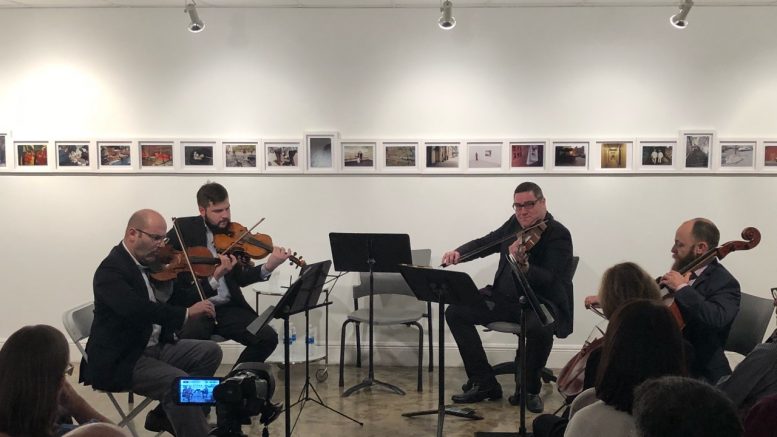By Brigitte Onorato
Should Beethoven’s music be altered? Many people, young and elderly attended the event on Tuesday January, 22nd labeled Crossing Boundaries,a music lecture series. “Music and law: the art of interpretation.” Located in FIU’s Miami Beach Urban Studio.
In the gathering a discussion took place with guest speaker, Alan Dershowitz, a professor in Harvard University and a well renowned attorney who has been involved in many controversial cases such as the O.J Simpson trial.
Dershowitz lectured on interpreting specific laws and documents such as the constitution. He explained that to be able to interpret the constitution one must not read it through their own beliefs and ideologies, but rather as a set of rules.
Following the lecture, Jason Calloway, a cello player for the Amernet String Quartet and Ensemble-In residence at FIU school of music stated that music has no form of regulations or rules, performers and musicians are free to do what they like.
The beauty of music is that it speaks to us readily than a language we might not understand. An example Calloway conveyed was Beethoven, his original music is a form of document that is similar to the constitution. It is a piece of history that will live on forever.
Aside from depicting the law, Beethoven’s music had no instruction on how to specifically interpret it. There is a basic understanding that law is interpreted in a uniform matter and music could be translated differently.
The String quartet would play Beethoven’s 32 piano sonata. Instead of pianos, it would be performed by the string quartet, a music ensemble that consists of the cello, violin, and viola.
This idea was created five years ago by Jeff L. Briggs a musical composer. As the performers began playing, complete silence surrounded the room, not a pin drop was heard.
The music was flowing beautifully, some of the audience members closed their eyes to really feel the music. It was a rollercoaster of sincere, passionate emotion that was flowing out from the sounds of the instruments and into the listeners ear.
As the sonata came to an end there was a talkback between Alan, the string quartet, and the audience. A gentleman from the crowd said he was discontent towards altering the original instrument from Beethoven’s piece. He elaborated and said the string instrument does not have the same sound that the piano would have transmitted. He also added that if Beethoven were in the same room to hear this rendition, how would he have felt and reacted towards this change.
Which brings me back to the original question, should Beethoven’s music be performed the way Beethoven intended to do, or should it be remodeled? This question was asked to Jason Calloway, he stated that when music like this works, it works.
Percussive, and lyrical music works perfect with the strings. Calloway mentioned to many people previously, he does not think Beethoven would be concerned about anything besides the fact that people are still playing his music.






Be the first to comment on "Music & Law cross boundaries with Alan Dershowitz and Amernet String Quartet"